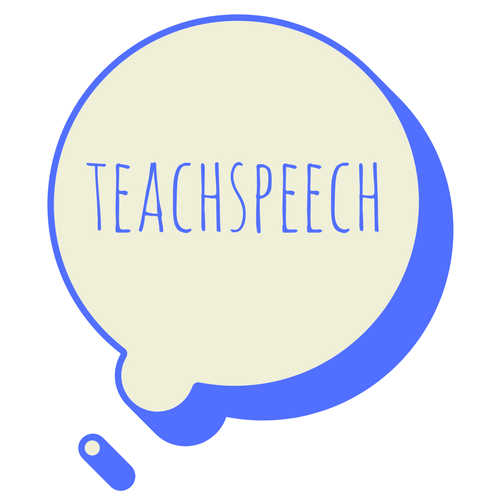“I don’t want to join a forensics club. I’m not a big science guy.”
Don’t quote me on that. I don’t think I actually said it, but it definitely went through my head when I first came to Delbarton School back in seventh grade. After school, I would see students passionately talking to walls that didn’t talk back. I want to say something witty like “I thought the forensic work was so daunting it was making my classmates slowly go insane and hallucinate mythical wall-beings that could respond to their minutes-long monologues,” but the truth is I never really thought about what it was that they did. For the first few months I was there, I had no idea that (1) debate was a part of forensics, (2) so was speech, and (3) joining forensics would change my life for the better.
There was a fourth unknown that deserves recognition. I had no idea what bullsh*t was and how I could stop it. Not that I didn’t know the term. I had heard it before in many contexts. Still, my relationship with the profanity was not actualized. The best comparison I can think of is when you read a word multiple times and consider yourself as having learned it, only to look it up in the dictionary and realize you weren’t entirely correct. This may be true of your relationship with bullsh*t, assuming you’ve never checked the dictionary for it. Following the metaphor, debate was my dictionary. In other words, forensics taught me how to detect bullsh*t.
The philosopher Harry Frankfurt re-published his 1986 essay “On Bullsh*t” in 2005 to great success. I had never heard of it while I debated. My philosophy TF at college recommended it to me, seeing that the topic of bullsh*t piqued my interest. I’m only bringing this up to distinguish between lies and bullsh*t. Liars lie with the belief that they know the truth in order to actively conceal it, Frankfurt argues, while the truth does not matter to bulls*itters. Whether or not they know the truth, they do not presume to have knowledge of it. The result of successful bullsh*ttery is akin to that of entropy: more disorder.
I was a public forum debater for Delbarton. Very early on in my career, I had to learn how to research effectively and create arguments. Perhaps most importantly, as a second speaker, I had to predict other arguments and prepare my counters to them. While this may not come across as a compliment at first glance, debate prepared me for bullsh*t by exposing me to it, both actively and passively. I see why this sounds bad: it gives the impression that debaters willingly bullsh*t and that the activity rewards them for doing so. I would argue the opposite.
First, “active bullsh*t,” which I believe refers to the competitive action of bullsh*tting in-round. While there are debaters who actively bullsh*t, the activity has built-in mechanisms to decrease its effectiveness. When something sounds like bullsh*t, debaters call for the card to get proper context. In any case, I think it is beneficial for students to be exposed to this active bullsh*t. It teaches critical thinking and healthy skepticism. Evidence that sounds too good to be true probably isn’t. Suave and loquacious speaking should not imply absolute truth. It also teaches restraint. Many debaters will be tempted to bullsh*t when caught off-guard in crossfire, only to dig themselves into insurmountable holes. I believe the more debate is successful at teaching these values, the less active bullsh*t the activity will have to counter.
Second, and perhaps more ominous, “passive bullsh*t,” which I define as falling victim to an author’s bullsh*t, usually unknowingly. What makes debate intellectually stimulating for me is its duality. Every argument has its real flaws, every card a true response. But some cards have a loose association with the truth. Their authors bullsh*t, but debaters take it as gospel. At its worst, an argument is comprised not of what is true but rather what can be “proven.” It is this bullsh*t that redeems any negative aspects of active bullsh*t. Having knowledge that the real world is comprised of people who also have the temptation to bullsh*t is essential for navigating the information landscape. It encourages you to question. Learning that the truth can be gray instead of black or white teaches you how to see gray.
At its core, bullsh*t is why I believe in teachspeech. More than ever, we need to know how to detect bullsh*t. Frankfurt observed back in 1986 that while people believe there is relatively more bullsh*t than there was earlier, the proportion of bullsh*t may well be constant, while communication itself grows exponentially. Thirty-two years later, his words sound prescient. Even if the share of bullsh*t in politics, business, culture, and life is steady, the gross amount of bullsh*t is orders of magnitude greater than when Frankfurt first put pen to paper. Teaching public speaking and the values of speech and debate will demonstrate to students just how easy it is to bullsh*t in 2018. However, those same values will foster their abilities to detect and combat bullsh*t just as easily.
Part of me wants to conclude this piece by hearkening to my current school’s motto, which translates to “truth,” but debate brings me back to my roots. The weekly forensics bulletins at Delbarton always quoted Seneca on the masthead: “The language of truth is simple.” I have every reason to believe that teachspeech will continue to champion it.

